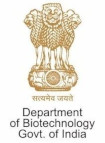Modelling neurodevelopment and disease - Brain Development and Disease Mechanisms
Brain disorders are a global health challenge with the vast majority having no effective treatments. Despite obvious differences in their clinical presentation, many of these disorders appear to share molecular, cellular and circuit mechanisms. Our vision is to accelerate the discovery of these mechanisms and thus facilitate the delivery of effective therapeutics for these disorders
The Brain Development and Disease Mechanisms theme at inStem seeks to understand the development of the mammalian brain at multiple scales of organization from molecules to brain circuits and behavior. In particular, we are interested in exploring cell-cell interactions and sub-cellular processes that underpin normal brain development and physiology that may result, when altered, in brain diseases. Such processes include but are not limited to membrane organization, translational control, chromatin regulation, RNA mediated mechanisms and related processes. The work within this theme seeks to link these basic biological mechanisms to aspects of human brain diseases including disease susceptibility, disease progression and pharmacogenomics to inform on the development of novel diagnostic and therapeutic options.
The theme adopts a multi-disciplinary approach to understanding brain function through discovery biology and disease modelling using modern stem cell technology including organoids, human genomics and gene editing technology, imaging and sophisticated physiological analysis. The scientific strategy of the theme links these technologies to clinical cohorts of relevant human brain diseases with associated biorepository resources as well as suitable animal models for in vivo analysis. A number of such resources have been attached including genomic data set, iPSC collections and clinical data sets (https://ncbs.res.in/adbs/home) and facilities for genetic and physiological analysis in rodent models (https://ncbs.res.in/research-facilities/acrc and https://www.instem.res.in/bddm/cns).

